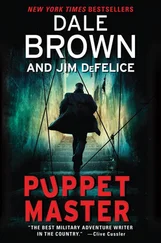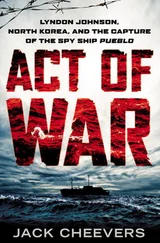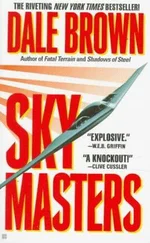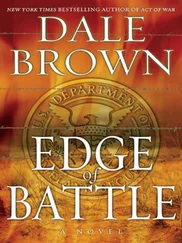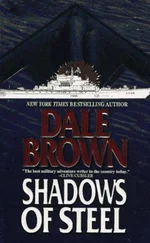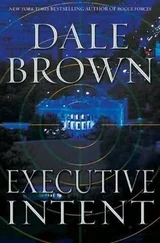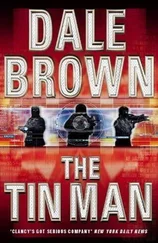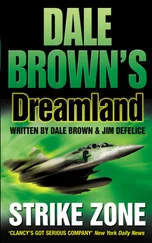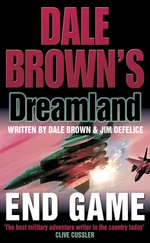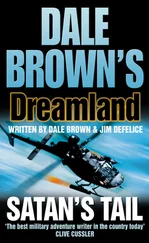“The word I’m getting from the congressional leadership says the same thing, Mr. President,” White House chief of staff Victoria Collins said. “Your supporters say the American people won’t stand for any more hardships in their lives that declaring war on terrorism would certainly bring. Plus, if your request for a declaration of war is defeated in Congress, it would be a crushing defeat for you and your party, and they’re not willing to risk their political futures on it. Your detractors say it would be perceived as nothing but grandstanding on the worst possible level, and win or lose they would be sure to present it as inflaming the nation’s emotions for nothing but political gain. It’s a loser either way.”
The President turned to Robert Chamberlain. “Robert?”
“You know my thoughts already on this, Mr. President,” Chamberlain said. “I don’t care about historical precedents or the political fallout—we need to act to defeat terrorism, plain and simple. Sure, the American people are getting tired of the restrictions, hassles, surveillance, and intrusions—but I don’t think they would get so tired of it if the President and his Cabinet made an all-out commitment to defeating the forces that threaten their lives. If we don’t at least go before Congress and the American people and make the case for all-out war against terrorism, people will forget why we’re doing this…and soon, it’ll just be our fault for making their lives miserable, not the terrorists.”
The President nodded his thanks, fell silent for a moment, then said, “George, I’d like you to stay on it.”
“Mr. President…”
“Mr. Attorney General, instead of looking for precedents, how about let’s come up with reasons why we should set a precedent,” Chamberlain interjected. “Instead of finding out that no one’s ever done it before, how about some good reasons why we should do it?”
“When I need your advice, Mr. Chamberlain, I’ll ask for it, thank you,” Wentworth said acidly.
“That’ll be all, everybody, thank you,” the President said quickly, rising to his feet. Wentworth, Kallis, and Lemke departed the Oval Office silently, firing angry glares at Chamberlain.
“Well, I think you’ve succeeded in alienating just about everyone in the Cabinet now, Robert,” Victoria Collins remarked.
“What’s the use in even having a Cabinet if they won’t do what you tell them to do, Mr. President?” Chamberlain asked. “I understand this is no small task, but all I’ve heard so far is why it can’t be done. Why don’t you just do it and let the American people decide if they’ll accept it or not?”
“I want the entire Cabinet squarely behind me before I proceed, Robert,” the President said. “It’s getting harder to get there when you browbeat and insult them like that.”
“I apologize, Mr. President,” Chamberlain said. “I’ll stop antagonizing them. But I wish they’d show some backbone, that’s all.”
The President looked at his National Security Adviser for a few moments, then nodded noncommittally and went back to the papers on his desk. “Thanks, Robert.”
“Thank you, Mr. President,” Chamberlain said, and departed the Oval Office.
The President waited a few minutes, then buzzed his inner office secretary. “Bring him into my private office, please.” He went into the private room adjacent to the Oval Office and stood behind his desk. A few moments later the door opened, and the President straightened his suit jacket and smiled. “Welcome, Harold,” he said, moving around to the front of his desk and extending a hand in greeting. “Sorry to keep you waiting so long.”
“No problem at all, Sam,” Harold Chester Kingman, president of TransGlobal Energy, said. “Your staff made me very comfortable.”
The President motioned to a leather chair in the small office as a tray of coffee was brought in and beverages were served. “You’ve been briefed on the situation with these Russian terrorist suspects?”
“Yes, I have,” Kingman said. “I appreciate being kept informed very much.”
“We definitely believe the terrorists are targeting your company around the world, Harold,” the President said, “and we want to do as much as possible to protect your company. You and your company are very valuable to our nation’s energy future. You heard our conversation in the Oval Office?”
“Yes,” Kingman said, taking a sip of coffee. “Zakharov is in the United States? That’s very worrisome. How could Chamberlain and your Homeland Security people miss that guy?”
“Apparently he had an airtight alias, developed many years ago—completely legitimate. Basically he used his money and connections in the Russian government—and his position in TransGlobal Energy, I’m afraid—to get passports and visas into Mexico. He got himself a legitimate business, got his American visas and entry documents. Then he turned himself into a sleeper agent, going about his normal activities right under our noses, just waiting to activate himself.”
“My lack of faith in this country’s immigration system has been fully justified.”
“You remember this guy?”
“Of course,” Kingman said casually. “Think of Joseph Stalin on a good day. The guy’s a heartless, ruthless psychopathic killer. I cannot overemphasize the incredible danger we’re in to have him loose in America, especially if he has valid identification and financial resources. And I remember Pavel Khalimov too, his ‘enforcer’ in the KirovPyerviy oil company—he’s even worse. At least Zakharov would consider your value to himself and his schemes first before putting a bullet in your head: Khalimov wouldn’t waste the brainpower.”
“Why didn’t you have Zakharov eliminated yourself, Harold?” the President asked. He knew that Harold Chester Kingman certainly chose murder as one of his tools for corporate success—and he also knew that he was probably the only man in the world that Kingman would allow to ask him such a question.
“He got away and disappeared before I could tag him—to South America, it now appears,” Kingman replied. “I should have searched for him harder, but he had tons of money from his Russian oil company and he paid better than I did in Brazil.”
“What’s Zakharov after, Harold?”
“Me,” Kingman replied matter-of-factly. He lit up a cigar without asking the President’s permission—payback for him asking such uncomfortable questions. “He’s a twisted egomaniacal son of a bitch, Sam. He’s engineered dozens of killings and attacks against TransGlobal facilities all over the world for months, and now he’s after me here in the U.S. Only a wacko could ever believe he’d get away with it. If he can’t get me, he’s content to kill thousands of innocent persons.”
“What’s his next likely target?”
“Since he was based in the Bay area and returned there, I’d say he’s lining up something out there,” Kingman said. “Our corporate headquarters is in San Francisco, but it’s a relatively useless target—we’ve dispersed corporate functions out to dozens of different and more secure locations long ago. An attack there would be mostly symbolic—and Zakharov doesn’t really do ‘symbolic’ stuff. He likes to go for the jugular. He’s already gotten TransGlobal’s number-one petroleum and natural gas facility in the U.S. at Kingman City, Texas. Our number-two facility is in Atlantic City, New Jersey, but our number three is in Long Beach, California, and our number-four is in Richmond, California. My best guess: Richmond. He’ll kill several birds with one stone there: disrupt our Bay area oil terminal, along with five other companies’ facilities; take a swipe at my corporate headquarters; and attack right in my hometown.”
Читать дальше

